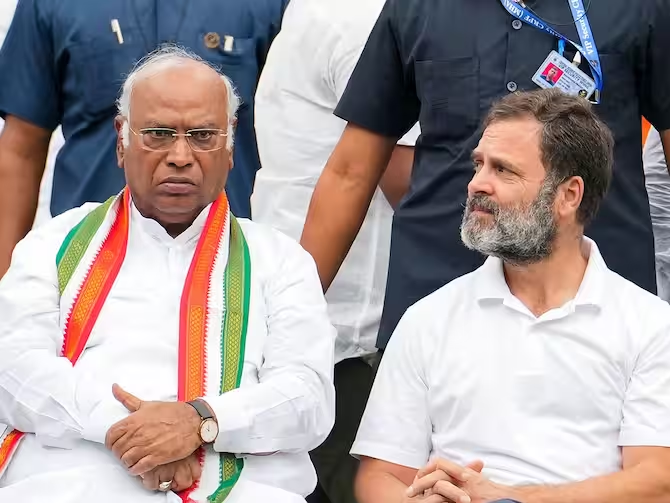
This is a battle the Congress must not lose
text_fieldsIt can be called only unfortunate that even after decades of setbacks, the Indian National Congress, which claims to be a national party embracing secular democracy as its cornerstone, started committing the folly of fighting radical Hinduism with soft Hinduism in the mid-eighties, and has failed in realising its blunder. It was the local Congress leadership that unilaterally paved the way for the opening of the Babri Masjid, which had been locked by the district administration since December 22, 1949, for worship even before the Allahabad High Court ruled on ownership rights. It was UP Congress leader named Arun Nehru that misled Rajiv Gandhi, who lacked political maturity and administrative experience. The tale since then is that those with vested interest bent upon making India a Hindutva nation seized the opportunity, riding Ram Rath across the country and igniting the religious sentiments of the majority community, and thus ascended the ladder of power step by step and finally went the long way in transforming India into 'Bharat', the cradle of Arsha Dharma.
 Also Read: Cong chief Kharge, Sonia invited to Ram Temple consecration; unlikely to attend
Also Read: Cong chief Kharge, Sonia invited to Ram Temple consecration; unlikely to attend
Indians have witnessed the changes in the country after Narendra Modi occupied the throne in Indraprastha as part of the National Democratic Alliance in 2014. The success achieved in transforming India into an upper-caste Hindu nation, with the full cooperation of the Ambanis and Adanis, and reducing the secular democratic constitution to a mere spectator, needs no further explanation or interpretation. And now with only a few months remaining in the term of the 17th Lok Sabha, Modi and his team are confident that the century-long dream of a fully Hindutva nation floated by the RSS will be realized in 2025 by securing a third term. And this time, they perceive the inauguration of the Ram temple, along the lines previously adopted, as the most effective means for achieving this goal. The temple was constructed at a cost of Rs 3,000 crore on the Babri Masjid Waqf land unilaterally awarded by the Supreme Court. At the forefront of the event are not Hindu priests or spiritual leaders, but Prime Minister Narendra Modi, his right-hand man Amit Shah, and their mentor, RSS Sarsanghchalak Mohan Bhagwat. It is evident that the inauguration of the temple, which is going to take place pregnant with political agenda, is bereft of any spiritual essence and instead is solely driven by power politics.
 Also Read: Ahead of Ram Temple consecration ceremony, road in Ayodhya adorned
Also Read: Ahead of Ram Temple consecration ceremony, road in Ayodhya adorned
There is also evident political exploitation in inviting the leaders and spokespersons of the prominent political parties of the country to such a program. While the Left parties are being sufficiently cautious not to fall into this trap, the dilemma and uncertainty haunting the flagship party of the INDIA bloc even at the last minute, are very unfortunate. There is nothing improper or inappropriate in anyone participating in the functions of a legitimately constructed shrine in India, a multi-religious nation. However, no perceptive mind can construe as harmless or as a spiritual act the inauguration of a temple, built on the site of a historical building, where the country's largest religious minority had been worshipping for centuries, and ruthlessly demolished for narrow political purposes. It is not only pitiful but also objectionable that the main opposition party is helplessly groping in the dark without learning the lesson despite having had ample opportunity to be seized of this truth. If the Congress shows the sagacity and determination to openly declare that its non-participation in the politicized religious ceremony, is due to its commitment towards the secular democratic constitution and pluralism in India, the party will undoubtedly get the sincere support of the majority of the country's secular democrats and minorities. And the upcoming Lok Sabha elections will also be viewed by the world as a battle between majoritarian religious fanaticism and true secularism.
























